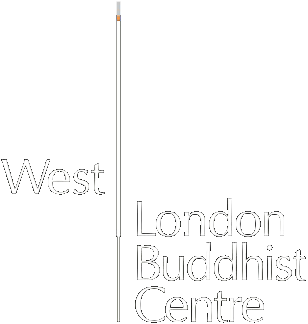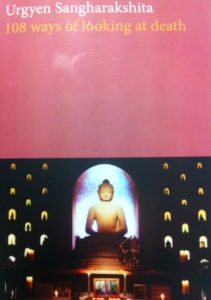Bhante’s Bardo Logbook *updated daily*
Following the death of Sangharakshita, the founder of the Triratna Buddhist Order, on Tuesday 30 October 2018, the team at West London Buddhist Centre is holding a meditation session 2-3pm on weekdays for 49 days to keep him in mind. Read on for a daily log of memories, poems and readings shared during this time.
Day 49: Monday 17 December
Held by Lilamani. Oooooohh this is the last day in our journey. The people in the session shared how our “Bardo sessions” have improved and refined their connection with Bhante. There is longing for more depth and devotion. We also read a passage from the book Broken Buddha, written by an Australian Bhikkhu called S.Dhammika, who says:
“[Sangharashita] set out to evolve a movement with an organizational structure and an interpretation of the Dhamma that would take into account the realities of Western society without compromising with those aspects of it that were at odds with Dhamma. Not surprisingly, the result has been highly successful and qualifies Sangharashita to be considered one of the few original Buddhist thinkers of the last three hundred years. It also qualifies him to be considered the first authentic Western Buddhist, as opposed to being merely a Westerner who has adopted the Buddhism of Tibet, Japan, Burma or Thailand.“
Then we meditated while gratitude for Bhante filled our hearts.
Earth dissolves into Water,
Water dissolves into Fire,
Fire dissolves into Air,
Air dissolves into Space,
Space dissolves into Consciousness,
Consciousness dissolves into – ?
HUM
Day 45: Thursday 12 December
Held by Sophie. With the end in sight, we had a little review of what we’ve done over the last few weeks. We explored the questions: what brought us here? What keeps bringing us back? What have we learned about Sangharakshita, ourselves, the Centre, the Order? While we may initially come to a Buddhist centre for ‘personal development’, we end up meeting like-minded people on similar paths and that’s what keeps bringing us back. We read the Karaniya Metta Sutta from Living with Kindness and sat with ‘open hearts’ for the remaining time to let in the joyful and the painful moments of our everyday lives.
Day 44: Wednesday 11 December
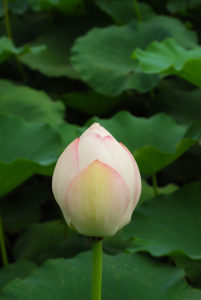
Held by Lilamani. And today we explored the poem The Four Gifts. Bhante told Saddhanandi he wrote this poem in 1975, when he was about to take a sabbatical and leave the responsibility of running the Triratna movement (then called the FWBO) in the hands of the existing Order Members. Which is poignant because now Bhante has left us, and we all have the responsibility of keeping his vision alive – developing trust, faith, friendship, effort, patience, kindness, perspective, and many other qualities as required.
Day 43: Tuesday 11 December
Held by Bodhilila. Members of the WLBC team and the Council members came to join in the Recollecting Bhante session as part of our team-building day, joined by a couple of regular attendees. We expressed our gratitude for Sangharakshita and chanted the Green Tara mantra and then we meditated.
Day 42: Monday 10 December
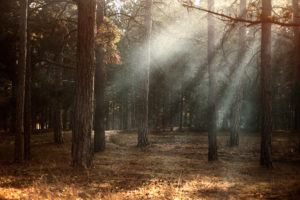 Held by Lilamani. Today we explored the poem “In the woods are many more”. What Sangharakshita says about the teachings of the Buddha in that poem also applies to his own teachings: so many books, so many talks, so many poems! As the poems interviews are coming to an end, we can only think “in the woods are many more”, and go and explore his other poems, and their connection to Bhante’s more formal teachings.
Held by Lilamani. Today we explored the poem “In the woods are many more”. What Sangharakshita says about the teachings of the Buddha in that poem also applies to his own teachings: so many books, so many talks, so many poems! As the poems interviews are coming to an end, we can only think “in the woods are many more”, and go and explore his other poems, and their connection to Bhante’s more formal teachings.
Day 39: Friday 7 December
 Held by Sophie. Just two of us today. We had a discussion on the theme of ethics, in particular Sangharakshita’s emphasis on the positive expressions of the five precepts to guide our day-to-day interactions. This led us to discuss the joys, hazards and blind-spots of ‘truthful communication’! After that we looked at generosity as a precept and the statement:
Held by Sophie. Just two of us today. We had a discussion on the theme of ethics, in particular Sangharakshita’s emphasis on the positive expressions of the five precepts to guide our day-to-day interactions. This led us to discuss the joys, hazards and blind-spots of ‘truthful communication’! After that we looked at generosity as a precept and the statement:
“True generosity…one not only gives all the time; one is also aware of receiving all the time.”
We did a short two-stage reflection calling to mind a friend and imagined the times we expressed generosity to them and then when we received their generosity. We then both shared what that practice brought up for us. Our guest shared her reflections on her 6 year old niece with a beaming, open and infectious smile. We both agreed that the little one had given so generously and so spontaneously when they had said, “Auntie, I used to be shy around you and now, I love you!”. What an example of what Sangharakshita calls “giving as a kind of communication” or in this case rather, that communication is a kind of giving.
Day 38: Thursday 6 December
A Buddha…would know that a motor car was conditioned, and he would not therefore by attached to it; but he wouldn’t necessarily be able to tell you how it worked.
In other words, he could have a deep spiritual understanding of the motor car without any mechanical understanding of it whatsoever.
Held by Bodhilila. Using Sangharakshita’s book Living Wisely for inspiration, we looked at the difference between knowledge and wisdom and its relationship to faith. These days people look to science as an intellectual authority, but what is the place of spiritual wisdom in the 21st Century?
Day 37: Wednesday 5 December
Held by Lilamani. A session that lasted 1.5 hours! We listened to the discussion on the strong, challenging poem The Bodhisattva’s Reply. We had already explored that poem (see Day 2 – long time ago…). This time we followed Saddhanandi and Bhante exploring it in a deeper level. Team members were joined by people who had been coming to the centre for a short time, and they were equally moved by the theme of the poem. So much that they refused to leave after the usual hour passed, and kept asking many interesting questions about Sangharakshita, the Dharma and the Triratna movement. And when the “oppression of a busy office” really kicked in, we went back to our tasks and left them quietly meditating in the shrine room.
Day 36: Tuesday 4 December
Held by Bodhilila. A return to the theme of Going for Refuge today. We looked at Sangharakshita’s vision of creating an Order that eliminated the traditional distinction between the monastic and lay communities. This emphasis on Going for Refuge to the Three Jewels has made it possible, even for those leading a Western lifestyle, to practice Buddhism. We read aloud verses from the Three-fold Puja and reflected on them.
Day 35: Monday 3 December
Held by Lilamani. Today was one of those few sessions when only one person was present. So again there was an initial tension: should I go ahead or go back to the “tasks” pilling on at the office. But the main task is practising, and that’s what I did (although there is plenty of chance for practising in the office too, but I meant practice on the cushion). I listen to Saddhanandi and Bhante discussing the poem The Mask. I really value authenticity, and the poem and the discussion were inspiring.
Day 32: Friday 30 November
 Held by Hanka. We had a lovely guest with us today, someone who had come late for the lunchtime drop-in class but decided to come join us instead. Fantastic! Another of the six emphases of the Triratna Buddhist Community is Right Livelihood. We heard a little about Sangharakshita’s vision of the movement with businesses attached to it to support it’s independence and ethical integrity. We each had a chance to talk about our relationship to Right Livelihood, especially looking at it in terms of ethical practice, a context for spiritual growth, supporting a simple life and the need for it to still be profitable!
Held by Hanka. We had a lovely guest with us today, someone who had come late for the lunchtime drop-in class but decided to come join us instead. Fantastic! Another of the six emphases of the Triratna Buddhist Community is Right Livelihood. We heard a little about Sangharakshita’s vision of the movement with businesses attached to it to support it’s independence and ethical integrity. We each had a chance to talk about our relationship to Right Livelihood, especially looking at it in terms of ethical practice, a context for spiritual growth, supporting a simple life and the need for it to still be profitable!
Day 31: Thursday 29 November
Held by Bodhilila. We continued to explore themes from Crossing the Stream which we started on day 24. We looked at the essay, ‘Pauses and Empty Spaces’ where Sangharakshita writes,“It is the pause which make beautiful the music of our lives. It is the empty spaces which give richness and significance to them. And it is stillness which makes them truly useful.” This was followed by a period of stillness and reflection. We did a period of Just Sitting meditation and ended the hour with Aloka’s poem, ‘Gratitude to Bhante’ where the last verse reads:
May the love between us all
Ensure our continual companionship
Throughout our continuum of lives
Until all sentient beings
Have been drawn to liberation
Day 30: Wednesday 28 November
Held by Lilamani. And following the sequence, the next poem Saddhanandi and Bhante explored was called Advent. (With the coincidence that the 2018 Christian Advent is about to start). Soul and Spirit, Sangharakshita One and Sangharakshita Two, LSD experiences – one can never predict what’s in store.
Day 29: Tuesday 27 November
Held by Lilamani. Today the poem we explored – always with Saddhanandhi’s (and Bhante’s) guidance – was called The Root Speaks. Spiritual bypassing, evil, and other “challenging” topics. Among us there was someone who had been coming to the WLBC for few months. She asked very interesting questions about klesas (how are they formed, what’s their function?). It is always a pleasure to engage with an intelligent beginners mind.
Day 28: Monday 26 November
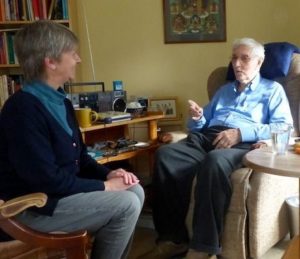 Held by Lilamani. Today we resumed the exploration of Bhante’s poetry through interviews with Saddhanandi. In a short tune-in at the start of our session, some of us mentioned members of our families. That resonated really well with today’s poem, The Family Reunion. It was lovely to listen to Bhante talking about his father, his mother and his sister, and follow his answers to Saddhanandi’s questions, with the occasional “Mmmmm…” where we could clearly imagine Bhante nodding his head, with the tips of his fingers touching each other. We also sat for 15 minutes in meditation.
Held by Lilamani. Today we resumed the exploration of Bhante’s poetry through interviews with Saddhanandi. In a short tune-in at the start of our session, some of us mentioned members of our families. That resonated really well with today’s poem, The Family Reunion. It was lovely to listen to Bhante talking about his father, his mother and his sister, and follow his answers to Saddhanandi’s questions, with the occasional “Mmmmm…” where we could clearly imagine Bhante nodding his head, with the tips of his fingers touching each other. We also sat for 15 minutes in meditation.
Day 25: Friday 23 November
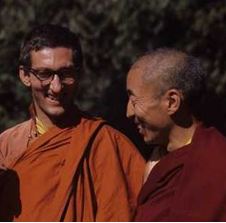
Held by Hanka. We had an opportunity on one of our previous Fridays to explore friendship and kindness. Today we looked at one of the six emphases of the Triratna Buddhist Community, spiritual friendship, in more depth. It was a space to share Sangharakshita’s recollections of his friendship with Dhardo Rimpoche. We shared thoughts about our own spiritual friendships and dedicated our Metta Bhavana to our spiritual friends.
Day 24: Thursday 22 November
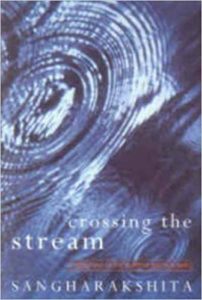 Held by Bodhilila. Sangharakshita in his book Crossing the Stream says: “Men and women bewildered by the ever-increasing complexity of modern civilization cry out for the simple life as a drowning man gasps for air.” This session was an opportunity to reflect on this idea of ‘simple life’, and explore what Sangharakshita meant by it and to what extent we are living out this ideal.
Held by Bodhilila. Sangharakshita in his book Crossing the Stream says: “Men and women bewildered by the ever-increasing complexity of modern civilization cry out for the simple life as a drowning man gasps for air.” This session was an opportunity to reflect on this idea of ‘simple life’, and explore what Sangharakshita meant by it and to what extent we are living out this ideal.
“The truly simple life is that
which is dedicated solely to the attainment of Supreme Wisdom,
and wherein each thought, word, and deed
is integrated to the achievement of that end.”
Day 23: Wednesday 21 November
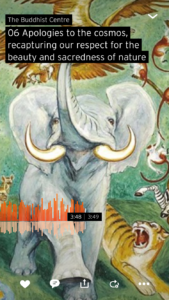 Held by Lilamani. As our 49-day journey approaches its midpoint, we expected numbers of participants dwindle. Today it was the first time there was only one participant. My mind quickly ran into ideas such as “maybe I should go back to the office and process all those payments and invoices instead”. Had I acted according to that thought, I would be really far from Bhante’s advice. So I held the session on my own, on behalf of the rest of the WLBC team and friends. I resumed our exploration of Bhante’s poetry, expertly guided by Saddhanandi, and I listened to the second interview, this time on the poem An Apology. It was a surprise to “listen” to Bhante’s ideas about ecology – an interest of him I had not been aware of (although it is not surprising to imagine he would be concerned with the state of the planet). These interviews, like hidden jewels, remind me of termas. Fortunately, they are not really hidden, and the path to find them is clearly indicated by the Buddhist Centre Online.
Held by Lilamani. As our 49-day journey approaches its midpoint, we expected numbers of participants dwindle. Today it was the first time there was only one participant. My mind quickly ran into ideas such as “maybe I should go back to the office and process all those payments and invoices instead”. Had I acted according to that thought, I would be really far from Bhante’s advice. So I held the session on my own, on behalf of the rest of the WLBC team and friends. I resumed our exploration of Bhante’s poetry, expertly guided by Saddhanandi, and I listened to the second interview, this time on the poem An Apology. It was a surprise to “listen” to Bhante’s ideas about ecology – an interest of him I had not been aware of (although it is not surprising to imagine he would be concerned with the state of the planet). These interviews, like hidden jewels, remind me of termas. Fortunately, they are not really hidden, and the path to find them is clearly indicated by the Buddhist Centre Online.
Day 22: Tuesday 20 November
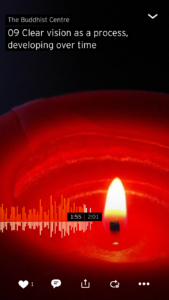 Held by Lilamani. Today’s session was a real treat: we listened to Saddhanandi interviewing Bhante on his poem Meditation. The interview is available here. Then we sat in meditation for 30 minutes, and “refreshed, we [did] rise and turn again to mingle with this world of pain”.
Held by Lilamani. Today’s session was a real treat: we listened to Saddhanandi interviewing Bhante on his poem Meditation. The interview is available here. Then we sat in meditation for 30 minutes, and “refreshed, we [did] rise and turn again to mingle with this world of pain”.
Day 21: Monday 19 November
Held by Lilamani. Today again we were inspired by Vidyadevi’s book (see Day 16 below), and before meditating we read entries concerning impermanence. It was poignant, as the team members present in the session have had recent losses of very close relatives and friends. Through the window we could see fallen leaves, echoing the book entry called Impermanence is All Around Us: “Everything is impermanent; there is nothing that is not. We see the leaves fall and the flowers fade; everything is impermanent.”
Day 19 & Day 20: Saturday 17 and Sunday 18 November
This weekend we celebrated Sangha Day in the context of our cosy WLBC Sangha – a small (but perfectly formed) drop in the large ocean of the Triratna Sangha. It included meditation, reflections, lunch, conversations and concluded with a lovely puja, when the WLBC mitras participated in a ritual reconfirming their commitment to the Three Jewels. It was a good example of cultivating conditions to inspire our Going for Refuge, as envisioned by Bhante when he created this Order and this movement just over 50 years ago. Our shrine reflected many shades of red and other warm colours, as opposed to the whiteness of the past weeks, and Bhante’s pictures were present as usual.
Day 18: Friday 16 November
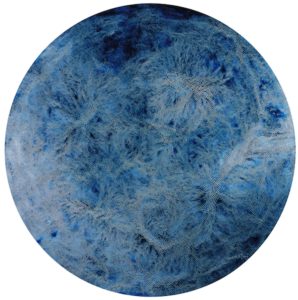
Held by Sophie. Sometimes silence speaks louder than words. It can have as strong an impact as action. And sometimes, when so much is said and done, there’s no other response but silence. And so, following some words on silence by the poet David Whyte, we just sat – not simply in the absence of noise – but in a deep abiding in “present unknowing”.
“Real silence puts any present understanding to shame; orphans us from certainty; leads us beyond the well known and accepted reality and confronts us with the unknown and previously unacceptable conversation about to break in upon our lives…
…Reality met on its own terms demands absolute presence, and absolute giving away, an ability to live on equal terms with the fleeting and the eternal, the hardly touchable and the fully possible, a full bodily appearance and disappearance, a rested giving in and giving up; another identity braver more generous; more silent and more here than the one looking hungrily for an easy, unearned answer.” [‘Silence’ from CONSOLATIONS: The Solace, Nourishment and Underlying Meaning of Everyday Words. David Whyte]
Day 17: Thursday 15 November
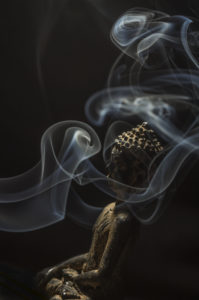
Held by Bodhilila. Today we revisited the theme of Going for Refuge, in particular looking at the ways in which our understanding of the Dharma needs the support of devotional practice. Sangharakshita stressed the need for ritual, devotion and engagement of the emotions as a counter-balance to the more intellectual and strictly rational side of mind as Dharma practitioners. Bodhilila shared some excerpts from early seminars on Going for Refuge as something that “becomes and grows by the process of going to it. [It grows] by your own process of committing yourself personally to the Three Jewels.” At the same time, “The refuge exists for us only in so far as something within ourselves responds and corresponds to it”, like watering and nourishing the seeds of the Buddha, Dharma and Sangha within us. We shared what this committed act of “Going for Refuge” means to us personally and did a three-fold puja, ending with offerings whilst chanting the Shakyamuni mantra.
“Originally, going for refuge represented a profound spiritual experience: you were moved to the very depths of your being, as we know was the case with the people who went for Refuge to the Buddha himself when he was alive. It was a matter of wholehearted commitment – wholehearted surrender – to the Three Jewels and to the spiritual life…We have to go back to the Three Jewels…This is where Buddhism really begins. This is the root, the foundation, the absolute bedrock of our spiritual life. This is how we really start practising the path – by going for refuge.”
[Excerpt from The Path of Regular Steps and the Path of Irregular Steps, in The Taste of Freedom]
Day 16: Wednesday 14 November
Held by Lilamani. During the period between Sangharakshita’s death and his funeral, which lasted about 10 days, Vidyadevi magically conjured a new book: a collection of Bhante’s writings, poems and reflections on the theme of death. The beautiful cover photo by Dhammarati, taken while the book was being produced, is an image of the shrine at Adhisthana in the week soon after Bhante’s death. (That was not a typo, the book was actually imagined, edited, formatted and printed in 10 days). At the WLBC today we read two texts from this book, resuming our exploration of the Six Elements Practice. We read entries 89 (The stupa and the six elements) and 91 (An almost unimaginable experience) – thank you, Vidyadevi! – and then sat with Bhante’s words echoing in our hearts for 30 minutes.
Day 15: Tuesday 13 November

Held by Lilamani. Today the session consisted of two Order Members. We rejoiced in Bhante’s funeral for a while, and then we did a Six Elements practice. We had the impression of being led by Bhante himself, using his poem The Six Elements Speak as our “guide”.
Day 14: Monday 12 November
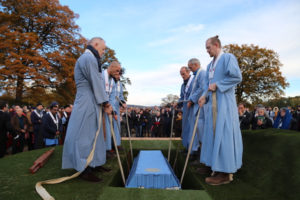
Photo credit: Dhammarati
Held by Lilamani. Some of us at the WLBC went to Bhante’s funeral in Adhisthana on Saturday, so we shared our impressions in this session. One of us who had volunteered at the funeral expressed her gratitude to the whole team of helpers and organisers at Adhisthana. We all agree there was a great deal of organisation involved, but there was also something richer than organisation: she experienced waves of metta permeating the tasks performed before, during and after the funeral. Metta as attention, consideration and collaboration, where team members went beyond their allocated tasks in order to help each other. Others in our session shared their sense of being welcomed at Adhisthana, and the magic of feeling at home in an event with circa 1200 participants. It was lovely that we could connect with the “WLBC people” and at the same time relate to the rest of the Triratna movement at its best. For the remaining 30 minutes we did a Metta Bhavana, bringing to our hearts Bhante, our friends and relatives who have died recently (including Vajradipa, whose funeral was happening at that same time), everyone who had been touched by Sangharakshita’s translation of the Dharma, and the whole world. (We were also encouraged to include in our metta the builders next door who were noisily drilling walls during half of our sit).
Day 12 & Day 13: Saturday 10 and Sunday 11 November
“Hello from Pune”
“Thank you from Taiwan”
“Joining you from China”
“Dawn is breaking in Seattle. Very magical to be a part of this with you all.”
On Saturday, members of the team traveled up to Adhisthana for Sangharakshita’s funeral and burial ceremonies. The Adhisthana team estimate that around 1, 200 – 1,400 people attended from all over the world. The majority arrived on Saturday, but they joined a steady stream of visitors who had traveled up earlier in the week to volunteer and to sit with Sangharakshita’s body in vigil.
The messages above are just some of the words of gratitude sent to the Clear Vision team who live-streamed the event on the day. There were also greetings sent from Stockholm, Singapore and Mongolia to name a few. It shows the reach of Triratna, that this is a truly international Sangha. If you read the account of the funeral on the Buddhist Centre Online, it must’ve taken such a huge team effort to put the event on and overcome the logistical mishaps in the process! Above all, it shows that just like the live images beamed beyond borders, the Dharma too resounds beyond borders in the hearts of so many. Regardless of whether you met him or not, there is a very tangible gratitude in the air to Sangharakshita for being a fundamental part in that gift. I’m sure we’ll be hearing more of the team’s impressions of the event in coming days.
Day 11: Friday 9 November
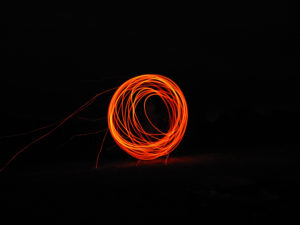
Held by Sophie. A meandering conversation today around metta, fearlessness and friendship. It is said that during this time in the bardo the consciousness of the deceased meets the wrathful forms. So, when faced with difficulty – inner and outer – we ask ourselves, what do we need to call on, metta or fearlessness? What is the appropriate response? Drawing on Living with Kindness, Sangharakshita’s commentary on the Karaniya Metta Sutta, we hear Sangharakshita’s conviction that metta is not an external concept but a living practice:
“I believe that humanity is basically one. I believe it is possible for any human being to communicate with any other human being, to feel for any other human being, to be friends with any other human being. This is what I truly and deeply believe. This belief is part of my own experience. It is part of my own life. It is part of me. I cannot live without this belief, and I would rather die than give it up. For me, to live means to practise this belief.”
And so, we moved on to a short metta exercise. We first called to mind a good friend for ten minutes, then ‘introduced’ our friend to the group, delighting in their qualities. Returning back to meditation we opened up this heartfelt connection to all living beings. It is here then, faced with the invitation of this radical possibility, we feel that perhaps metta and fearlessness go hand in hand.
Day 10: Thursday 8 November
Held by Abhayadevi. Today we reflected on Going for Refuge, which might be described as the act of committing one’s life to Buddhism and its three central tenets, The Buddha, the Dharma (his teachings), and the Sangha (the Buddhist community). Abhayadevi read various excerpts from Sangharakshita’s The History of My Going for Refuge, and after each one we had an opportunity just to sit and reflect on it, contemplate as we wished. We followed a thread through the life of Sangharakshita, from when he came across the Diamond Sutra at the age of 16 and realised he was a Buddhist; through leaving the army and going forth into a life of homelessness in India; through his observations and practice of the diverse Buddhist traditions that he encountered, and his realisation of the need to found a new community and Order here in the West – one in which distinctions between the monks and laity, men and women, no longer exist, and what matters is that each is an expression of Avalokiteshvara acting in the world.
Day 9: Wednesday 7 November
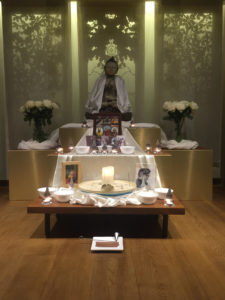 Held by Lilamani. Today we had a surprise: a heart-warming report from a WLBC mitra, Sally Garner. The previous day she was driving around Herefordshire with her husband Steven. Every one of their plans (where to go, where to eat etc) ended up falling through. Then they happen to see a sign to Coddington, and considered popping in at Adhisthana. Sally was sure everyone would be too busy to give them any attention, but Steven was encouraging: “Sally, be brave!”. As soon as they parked the car, they felt very welcome by the (busy!) team. And there happened to be exactly two slots still available to sit with Bhante at that time. From then on, every slot was taken.
Held by Lilamani. Today we had a surprise: a heart-warming report from a WLBC mitra, Sally Garner. The previous day she was driving around Herefordshire with her husband Steven. Every one of their plans (where to go, where to eat etc) ended up falling through. Then they happen to see a sign to Coddington, and considered popping in at Adhisthana. Sally was sure everyone would be too busy to give them any attention, but Steven was encouraging: “Sally, be brave!”. As soon as they parked the car, they felt very welcome by the (busy!) team. And there happened to be exactly two slots still available to sit with Bhante at that time. From then on, every slot was taken.
To complete the list of auspicious coincidences, as Sally got into the Amitabha shrine room she spotted her friend Sudrishti sitting there too. Sally was moved by the objects carefully placed by Bhante’s body, and especially by the Refuge Tree painting. (Recently, at Tiratanaloka, Sally had built a strong connection with our Refuge Tree, which transformed from “something that looked like an advent calendar” to a rich and alive meditative experience). Both Sally and Steven were touched by the atmosphere of love and respect, and also by the friendliness of people in Adhisthana. And we, at the WLBC, really enjoyed hearing a first hand account of that experience. The image of our Refuge Tree was kept alive in our hearts while we chanted the Shakyamuni mantra, inspired also by the picture of Bhante and his teachers placed on the shrine.
Day 8: Tuesday 6 November
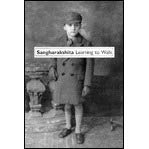 Held by Lilamani. Often we explore Bhante’s writings, so today we talked about his readings instead. We shared excerpts from his early memories, where he relates books and magazines he read when he was a little boy. Bhante’s sense of humour was appreciated, and we smiled – or even laughed – some times. Once again we were joined by WLBC friends who had never connected to Bhante directly, and were curious to know more about him. The readings were followed by a 30 minutes metta bhavana, bringing Bhante to our hearts.
Held by Lilamani. Often we explore Bhante’s writings, so today we talked about his readings instead. We shared excerpts from his early memories, where he relates books and magazines he read when he was a little boy. Bhante’s sense of humour was appreciated, and we smiled – or even laughed – some times. Once again we were joined by WLBC friends who had never connected to Bhante directly, and were curious to know more about him. The readings were followed by a 30 minutes metta bhavana, bringing Bhante to our hearts.
Day 7: Monday 5 November

Held by Lilamani. Today we shared “secret” and not very well known stories of Sangharakshita: informal snippets we experienced first hand or heard from close friends, stories not officially documented in talks and writings. For example, Lilamani talked about knitting socks for Bhante (the last pair was lilac since there were not many options of wool in Ledbury), and Hanka talked about cooking for Bhante (he could only have very soft boiled potatoes, and rice had always to be brown). We were joined by people who had little connection with Bhante, or who had been to the WLBC only for a few times. They were curious, grateful and willing to connect with Sangharakshita’s teachings. And while we talked and shared stories, we noticed almost every story related to friendship. A special mention went to his very good friends in Adhisthana, the team that took care of Bhante in his final years (and arranged for his socks to be knitted, and his food to be to his liking). We ended with a “secret” not very well known version of the Green Tara mantra and sat for 10 minutes.
Day 5 & Day 6: Saturday 3 and Sunday 4 November
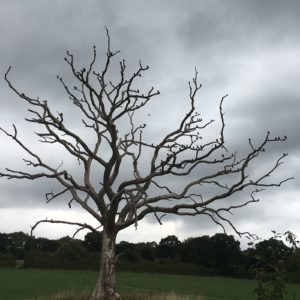 As the team disperses for the weekend we enter day five of the bardo which is associated with the green glow of Amoghasiddhi, the Buddha of Unobstructed Success. On the sixth day, all five buddhas manifest together in a great mandala of buddhas, bodhisattvas and wrathful deities. It is said in the Tibetan tradition that this can be a time of great fear accompanied by the temptation to turn away from this experience. For those left behind, death is also a time of great change and can bring about fear or anxiety about ‘what next?’ So here we can take a pause from the week’s activity and take heart in that life lived fully in tireless service of the Dharma. As Sangharakshita’s body was returned to Adhistana, his home in the final years of his life, we are told by his closest friends that the last year was one of Sangharakshita’s happiest as he was able to live at the heart of the Order and witness his life’s work reflected in the activity around him.
As the team disperses for the weekend we enter day five of the bardo which is associated with the green glow of Amoghasiddhi, the Buddha of Unobstructed Success. On the sixth day, all five buddhas manifest together in a great mandala of buddhas, bodhisattvas and wrathful deities. It is said in the Tibetan tradition that this can be a time of great fear accompanied by the temptation to turn away from this experience. For those left behind, death is also a time of great change and can bring about fear or anxiety about ‘what next?’ So here we can take a pause from the week’s activity and take heart in that life lived fully in tireless service of the Dharma. As Sangharakshita’s body was returned to Adhistana, his home in the final years of his life, we are told by his closest friends that the last year was one of Sangharakshita’s happiest as he was able to live at the heart of the Order and witness his life’s work reflected in the activity around him.
Day 4: Friday 2 November
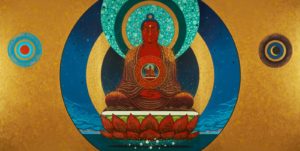 Held by Hanka. Day four of the bardo in the Tibetan tradition is associated with Amitabha where the deceased may encounter the intense red light of discriminating wisdom, shining from Amitabha. It is also the time when they may be drawn towards the faint yellow glow of the ‘realm of hungry ghosts’. Today we remembered Sangharakshita ‘the meditator’ and were reminded that meditation too is a bardo, an ‘intermediate’ state. After evoking Amitabha through mantra, we did a three-stage metta bhavana practice, opening our hearts to ourselves, to Bhante and finally, to our friends and family in this warm, red, loving presence. (Image by Aloka, © Padmaloka)
Held by Hanka. Day four of the bardo in the Tibetan tradition is associated with Amitabha where the deceased may encounter the intense red light of discriminating wisdom, shining from Amitabha. It is also the time when they may be drawn towards the faint yellow glow of the ‘realm of hungry ghosts’. Today we remembered Sangharakshita ‘the meditator’ and were reminded that meditation too is a bardo, an ‘intermediate’ state. After evoking Amitabha through mantra, we did a three-stage metta bhavana practice, opening our hearts to ourselves, to Bhante and finally, to our friends and family in this warm, red, loving presence. (Image by Aloka, © Padmaloka)
“The intermediate state is intermediate between physical death and physical rebirth. But meditation is also an intermediate state, because when we meditate – in the true sense – we die. In the same way, physical death is a meditative state, a state of enforced meditation, enforced samadhi. In both intermediate states – the one between death and rebirth and the one that occurs in meditation – we can see Buddhas and Bodhisattvas, even mandalas of Buddhas and Bodhisattvas. These are not outside us; they are the manifestation of our own True Mind, the manifestation of the Dharmakaya, and we can, as it were, identify with them and thus be spiritually reborn in a Transcendental mode of existence. If we do not succeed in identifying with them in this way, then we are simply reborn in the ordinary sense – we fall back into the old conditioned self.”
Day 3: Thursday 1 November
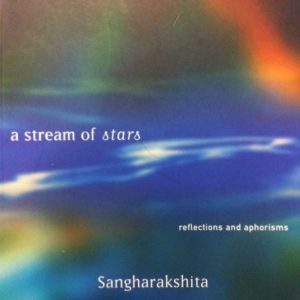
Held by Sophie. We held a reflection practice by taking turns to pick at random and read aloud some of Bhante’s reflections and aphorisms from the collection, A Stream of Stars, and sitting with the words for some time.
“One can love people only as far as one understands them, and be ready to love them more when one understands them better.”
–
“We should not underestimate the role of the will in the spiritual life. It is not enough to have feeling for the Buddha. We have to will to be like the Buddha. One might even say there is no spiritual life without will. Indeed, spiritual life could be defined as the constant willing of the good in all circumstances.”
–
“The worldly-minded think in terms of happiness, the spiritually-minded in terms of liberation.”
Day 2: Wednesday 31 October
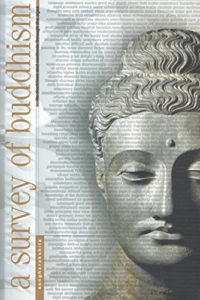
Held by Lilamani. We talked about why we wanted to commit to these Bhante in the Bardo sessions for 49 days. We expressed gratitude for his vision that brought about many friendships and connections. A couple of people rejoiced in his writings (especially the Survey) and poem, The Bodhisattava’s Reply, in relation to his work in India. We chanted the Green Tara mantra followed by a short sit.
I shall say nothing, but only
Fold in Compassion’s arms
Their frailty till it becomes
Strong with my strength, their limbs
Bright with my beauty, their souls
With my wisdom luminous, or
Till I have become like them
A seed between wet stones
Of custom and circumstance.
Day 1: Tuesday 30 October
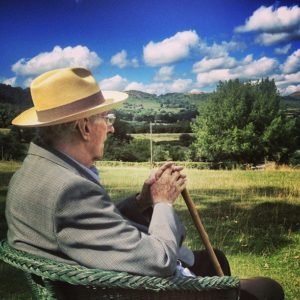
Held by Lilamani. The team chanted the Shakyamuni, Amitabha and Padmasambhava mantras followed by a short meditation.
